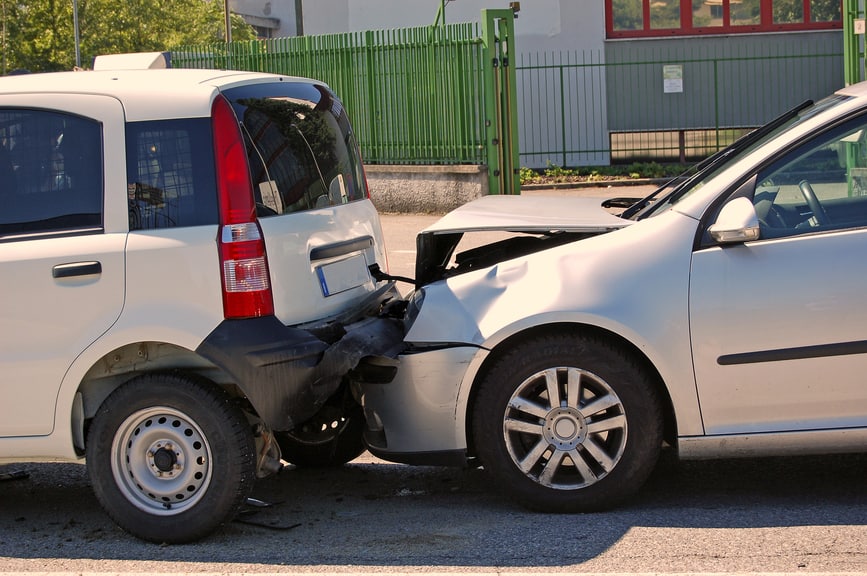At Fault in an Auto Accident: Can I Sue & Recover Damages in Texas?
August 5, 2023
You may be entitled to compensation for a car accident in Texas even if you’re partly at fault. That’s because theTexas has comparative negligence laws.
Here’s how those laws work and what’s crucial to know if you or a loved one is ever in a car accident in Texas.
Comparative Negligence versus Contributory Negligence

- With contributory negligence bars to recovery in some states, auto accident victims can only recover damages if they were not at fault for the accident at all. So, these victims — or the “plaintiffs” in these claims — will generally NOT be eligible to seek compensation after a wreck if they were even slightly at fault for causing it. That could mean contributing as little as 1% while another party is 99% at fault and still being barred from compensation.
- With comparative negligence, victims may seek damages even if they are partly at fault for causing the accident that hurt them. States that follow the comparative negligence doctrine can have their own limits for what constitutes a “permissible” level of fault versus when recovery may be barred for victims. Still, this model can offer some more leeway for accident survivors. It may also make fault determinations a bit more challenging.
Auto Accidents, Texas Comparative Negligence & the 51% Bar Rule
Texas follows a specific type of comparative negligence doctrine known as the modified comparative fault 51% Bar Rule or proportionate responsibility. With this rule applied to a car accident case in Texas:
- Crash victims who are partly to blame for causing a motor vehicle accident CAN recover damages as long as they’re 50% or less at fault for the accident.
- If crash victims are 51% or more at fault for an auto wreck, they won’t be able to recover compensation under Texas law.
- When partially at-fault victims do recover car accident compensation, those recoveries will typically be reduced by the same amount as the victim’s level or percentage of fault. So, if the victim is 10% at fault, compensation from their claim would be reduced by 10%.
- The 2-year statute of limitations still applies. That means cases still have to be filed within the 2-year deadline provided by Texas law for at-fault victims to maintain any eligibility they may have for compensation.
Texas Comparative Negligence: An Example with a Motor Vehicle Accident Claim

- A reckless trucker who ran a red light due to fatigue and violating hours of service rules (i.e., federal trucking regulations)
- A jaywalking pedestrian who was also drunk at the time of the accident.
- A fault determination that deems the trucker to be 75% liable while the pedestrian is 25% at fault
- The pedestrian files an accident claim that ultimately results in $100,000 in damages.
Since the pedestrian was 25% at fault in this case:
- The $100,000 in damages would typically be reduced by 25%, the same as the victim’s level of fault in causing the accident.
- The pedestrian would end up with $75,000 in damages because the compensation would be reduced by $25,000 (i.e., $100,000 – 25% or $25,000 = $75,000).
A Word on Comparative Fault in Texas Car Accidents: 3 Facts
Texas comparative fault laws can make it easier to seek compensation after more complex crashes when two or more parties share some liability for wrecks. Still, with comparative fault and Texas auto accident cases, it’s crucial to know that:
- Investigations are essential: That’s no secret, but in the context of Texas comparative negligence laws, it may come into focus more clearly. After all, the evidence from crash scenes can go a long way toward establishing fault — and that evidence won’t be around forever. That’s why it’s generally so important to call the police after Texas traffic collisions. If you don’t, you may be violating Texas laws while possibly compromising your ability to prove fault later.
- Fault determinations aren’t always correct: Police, insurance companies, and others can make mistakes with fault determinations. That could happen if certain evidence isn’t available, like blood alcohol testing results, vehicle maintenance records, or commercial driver’s license credentials. It may also occur when some parties, like insurance companies, are trying to avoid paying claims.
- It’s prudent to conduct your own investigation: Don’t rely on others’ fault determinations as the last word or a statement of “truth.” Other parties can be focused on blaming you, even if that’s a stretch or the evidence seems to suggest otherwise. To counteract those efforts and protect your rights and a potential claim, work with an attorney who can help you stand up to and push back against wrongful fault determinations.
Comparative Fault in Texas Car Accidents: The Bottom Line
After an auto accident in Texas, you could face serious questions about comparative fault, and:
- It can be tricky to navigate crash investigations, state laws, claim filing deadlines, and fault determinations.
- Your evidence, including accident scene photos, police reports, cellphone records, and more, can help you understand and establish fault when it’s time to bring a claim and recover.
- You CAN be eligible for damages for auto accidents even if you may have been partially at fault for that crash.
Finally, retaining an auto attorney can be invaluable. From making proper fault determinations to preserving the value of claims after crashes, an experienced lawyer can help victims make the right moves to recover full, fair compensation.
